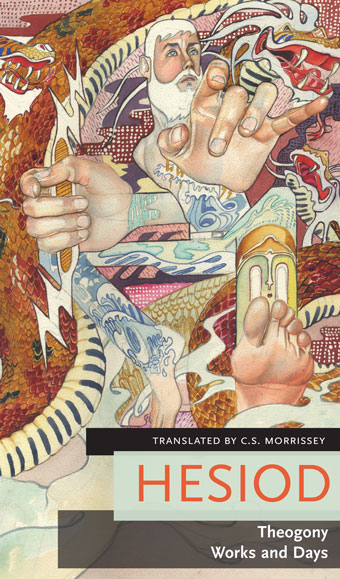Foreword by Roger Scruton |
| Dr.
C. S. Morrissey "Ascraeumque cano Romana per oppida carmen" (Verg., G. ii.176) Fellow of the Adler-Aquinas Institute Managing Editor, |
 |
"Hesiod's appeal may widen with the publication of Morrissey's new translation. It is clear and reads well, especially aloud. Shifts in tone and vocabulary from the formal to the demotic are challenges that some translators fail to meet. Not Morrissey. ... Morrissey has brought fire and light to
Hesiod's work, and offered it to us with clarity and good humour, in
the darkening air of our time."
"Morrissey’s
version … has a gnomic quality, and we do feel as if we are glimpsing
the art of an ancient poet. … At the same time, the book does
not discount the possibility of being used for academic purposes …
this translation works effectively as a source for the myths which is
uncommonly mindful of historical circumstances surrounding its composition,
which we are at times in danger of forgetting. … Morrissey’s
diligent style and innovative framing devices provide a new and helpful
context to read and re-read some of the great founding narratives of
classical literature." |
"Simply put, this translation
possesses the potential "My favorite book of the year was,
without a doubt, Canadian philosopher Chris Morrissey’s new translation
of Hesiod’s Theogony and Works and Days
(Talon). Morrissey has provided a spectacular and poetic read of one
of the greats of antiquity. The profundity of Hesiod’s language
as well as his mythopoetic vision shine forth in this new translation."
|

